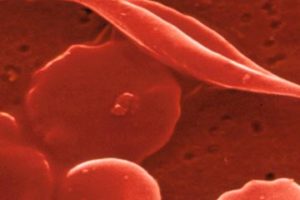saint louis university
Saint Louis University findings: Don’t pitch stockpiled avian flu vaccine
ST. LOUIS — A stockpiled vaccine designed to fight a strain of avian flu that circulated in 2004 can be combined with a vaccine that matches the current strain of bird flu to protect against a potential pandemic, researchers from Saint Louis Univer…
‘Obesity is a family illness’: Research offers clues on how to stop the cycle
The first step in addressing the obesity epidemic is to teach parents of young children how to eat right, according to new Saint Louis University research published in this month’s issue of Preventive Medicine.
“Obesity is a family illness,” says Debra Haire-Joshu, Ph.D., principle investigator and director of the Obesity Prevention Center at Saint Louis University School of Public Health. “Children typically are not born obese. They learn to become obese in an environment that encourages it. If parents are eating poorly, that’s what they’re providing their children.”
Boozing up your battery
From scientists at Saint Louis University comes a gadget fit for a James Bond movie. Imagine 007 sauntering up to the bar, ordering his trademark martini (shaken, not stirred) and, before taking a sip, topping off his cell phone with a few drops of alcohol to recharge the battery.
Researchers have developed a new type of biofuel cell ? a battery that runs off of alcohol and enzymes ? that could replace the rechargeable batteries in everything from laptops to Palm Pilots. Instead of plugging into a fixed power outlet and waiting, these new batteries can be charged instantly with a few milliliters of alcohol. The new findings were presented today at the 225th national meeting of the American Chemical Society, the world?s largest scientific society, in New Orleans.
Baboon behavior offers clues in the all-too-human battle of the bulge
Lack of exercise – and not diet – causes obesity and diabetes among those who are predisposed to the conditions, suggests new research on wild baboons. In addition, researchers discovered that obese animals were NOT the ones with the highest cholesterol levels, suggesting cholesterol problems and obesity are triggered by different mechanisms. “Figuratively speaking, if humans don’t exercise, some are likely to become obese and as fat as baboons.”
Researchers make breakthrough in understanding cause cancer development
A lab headed by a Saint Louis University researcher has made a major breakthrough that could lead to a better molecular understanding of cancer. Results published today in the Journal Molecular Cell by Ali Shilatifard, Ph.D., and colleagues show for the first time how a protein known to be involved in the development of cancer functions in normal cells. The research shows how the protein “Bre1” plays a pivotal role in determining how the protein “Rad6” functions in modification of chromosomal DNA. Also participating in this research was the lab of Dr. Mark Johnston at Washington University School of Medicine.




